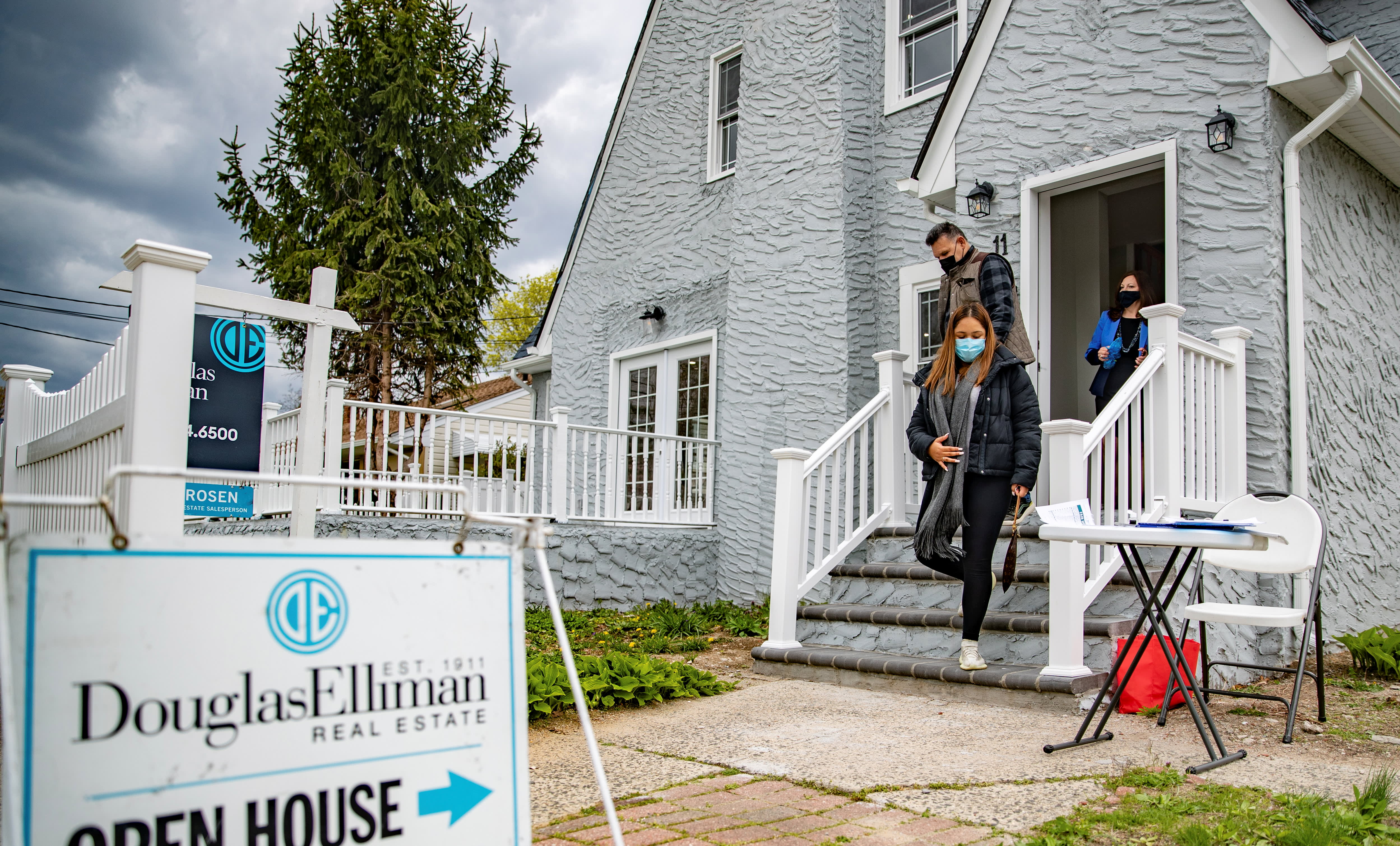
A real estate agent stands in the doorway as Giovani and Nicole Quiroz of Brooklyn, New York visit an open house in West Hempstead, New York.
Raychel Brightman | Newsday LLC | Newsday | Getty Images
The popular 30-year fixed mortgage rate fell back to the lowest level since February last week, and the 15-year fixed set a record low. That sent borrowers to their lenders, looking to save money on their monthly payments.
Applications to refinance a home loan jumped 9% last week from the previous week, according to the Mortgage Bankers Association’s seasonally adjusted index. They were still 10% lower than a year ago. The refinance share of mortgage activity increased to 67.2% of total applications from 64.9% the previous week.
The average contract interest rate for 30-year fixed-rate mortgages with conforming loan balances ($548,250 or less) decreased to 3.01% from 3.11%, with points decreasing to 0.34 from 0.43 (including the origination fee) for loans with a 20% down payment. The average rate on the 15-year fixed set a new low of 2.36%.
“The 10-year Treasury yield fell last week, as investors grew concerned about increasing Covid-19 case counts and the downside risks to the current economic recovery, said Joel Kan, MBA’s associate vice president of economist and industry forecasting.
Applications for a mortgage to purchase a home fell 2% for the week and were 18% lower than a year ago. That was the second week of declines and the lowest level since May 2020. Purchase applications have now been lower on an annual basis for the past three months.
“Potential buyers continue to be put off by extremely high home prices and increased competition,” Kan said.
Mortgage rates continued to slide early this week, but all eyes and ears are now on the Federal Reserve’s statement coming Wednesday at 2 p.m. ET. Mortgage rates don’t follow the federal funds rate, but they are loosely tied to the yield on the 10-year U.S. Treasury and are guided by the demand for mortgage-backed bonds. The Fed has been buying those bonds but has said it would begin to curtail its purchases. If Fed comments suggest buying will continue longer than expected, then mortgage rates could fall further.
“On the other hand, if the Fed says the recent surge in Covid cases was on their radar and that there hasn’t been any reconsideration of ‘late 2021’ tapering goals, rates could definitely pop higher,” wrote Matthew Graham, chief operating officer at Mortgage News Daily.




